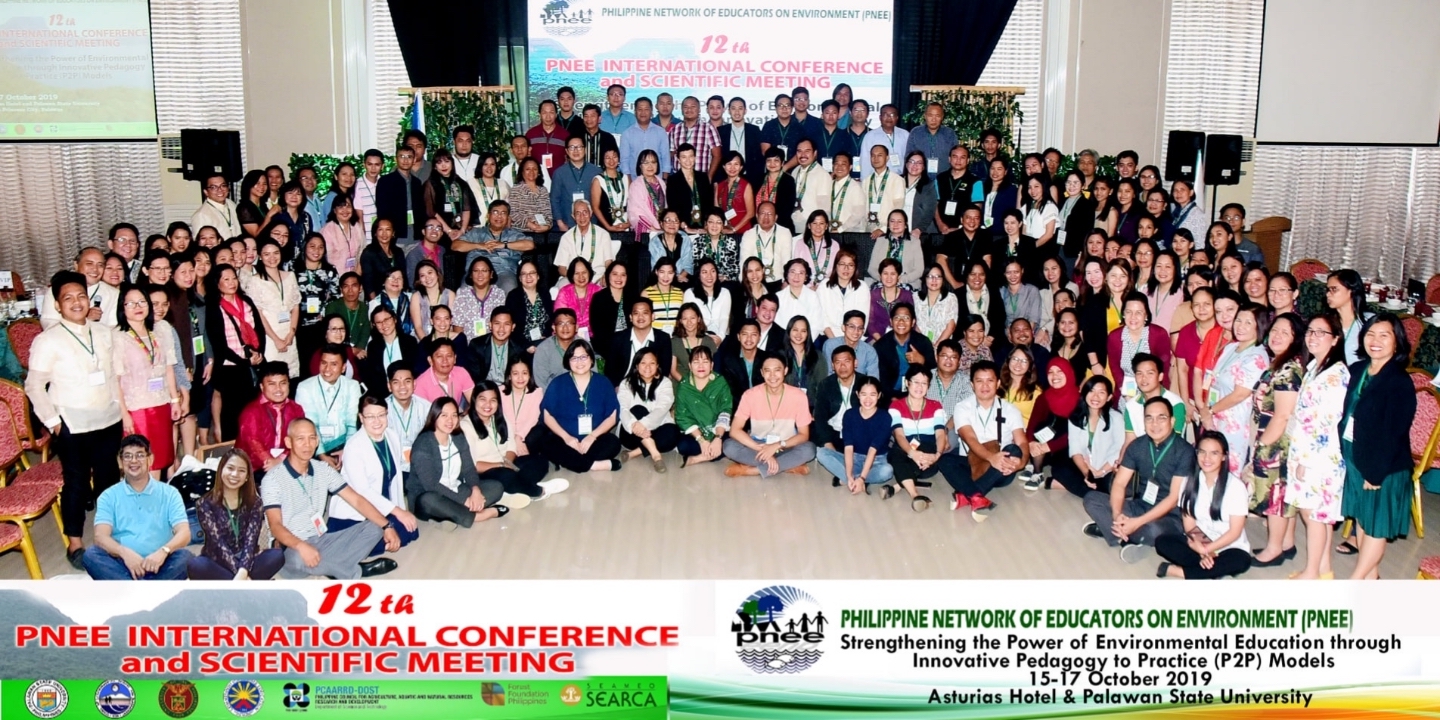The Philippine Network of Educators for Environment (PNEE) successfully conducted its annual international and scientific meeting last 15-17 October 2019 at the CityState Asturias Hotel and Palawan State University in Puerto Princesa, Palawan. With 200 participants representing 80 higher education institutions (HEIs) in the Philippines, the conference served as an engaging platform for educators to share knowledge and practices on Environmental Education for Sustainable Development and in setting directions how instruction, research and extension programs related to environmental education in the Philippines and Southeast Asia could be further enhanced. The conference received key support from the Commission on Higher Education, Forest Foundation Philippines, including Palawan State University as this year’s host.
The conference featured three keynote talks, five plenary presentations, 32 parallel sessions organized following the SDGs, 49 poster presentations, and field visits to Yamang Bukid and Puerto Princesa Underground River—all spread across a 3-day duration. The keynote speakers were Dr. Mercedita A. Sombilla of the National Economic Development Authority (NEDA), Dr. Flavie Goutard of CIRAD-France and Kasetsart University, and Dr. David Mark Taylor of National University of Singapore. The plenary sessions featured Academician Jose Maria Balmaceda of the National Academy of Science and Technology (NAST) and the University of the Philippines Diliman, Atty. Grizelda Mayo-Anda of Palawan State University, Dr. Vachel Gay Paller of the University of the Philippines Los Baños, Dr Mikihiko Watanabe of University of Yamanashi in Japan, and Ms. Carmen Nyhria Rogel of SEARCA.
To further afford the attendees a greater appreciation on the theory and practice of environmental education, two panel sessions were organized focusing on the topics, Retracing the history of environmental education in the Philippines: What this means for the crafting of innovative environmental education pedagogies and impactful research modalities? with Dr. Ben S. Malayang as the Chair; and Schools as Environmental Leaders: The value of Dark Green School (DGS) System for the Higher Education Institutions (HEIs) in the Philippines and Southeast Asia with Dr. Nicomedes D. Briones and Dr. Angelina P. Galang as co-chairs.
Overall, the PNEE conference has once again highlighted the important role of the HEIs in advancing and implementing environmental education initiatives, particularly in finding effective modalities how students and the general public could imbibe love for the environment, as well as in translating this to concrete actions and initiatives for environmental conservation. The next year’s PNEE conference will be held on October in Davao City, Philippines. (RCAncog)

